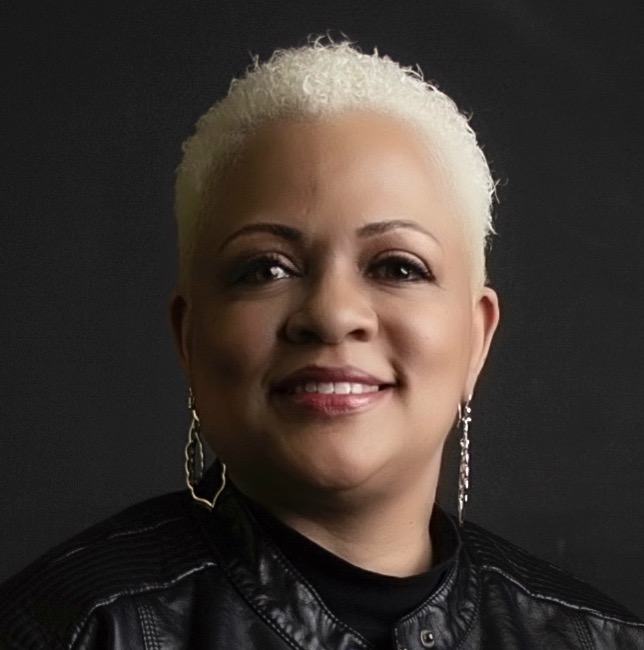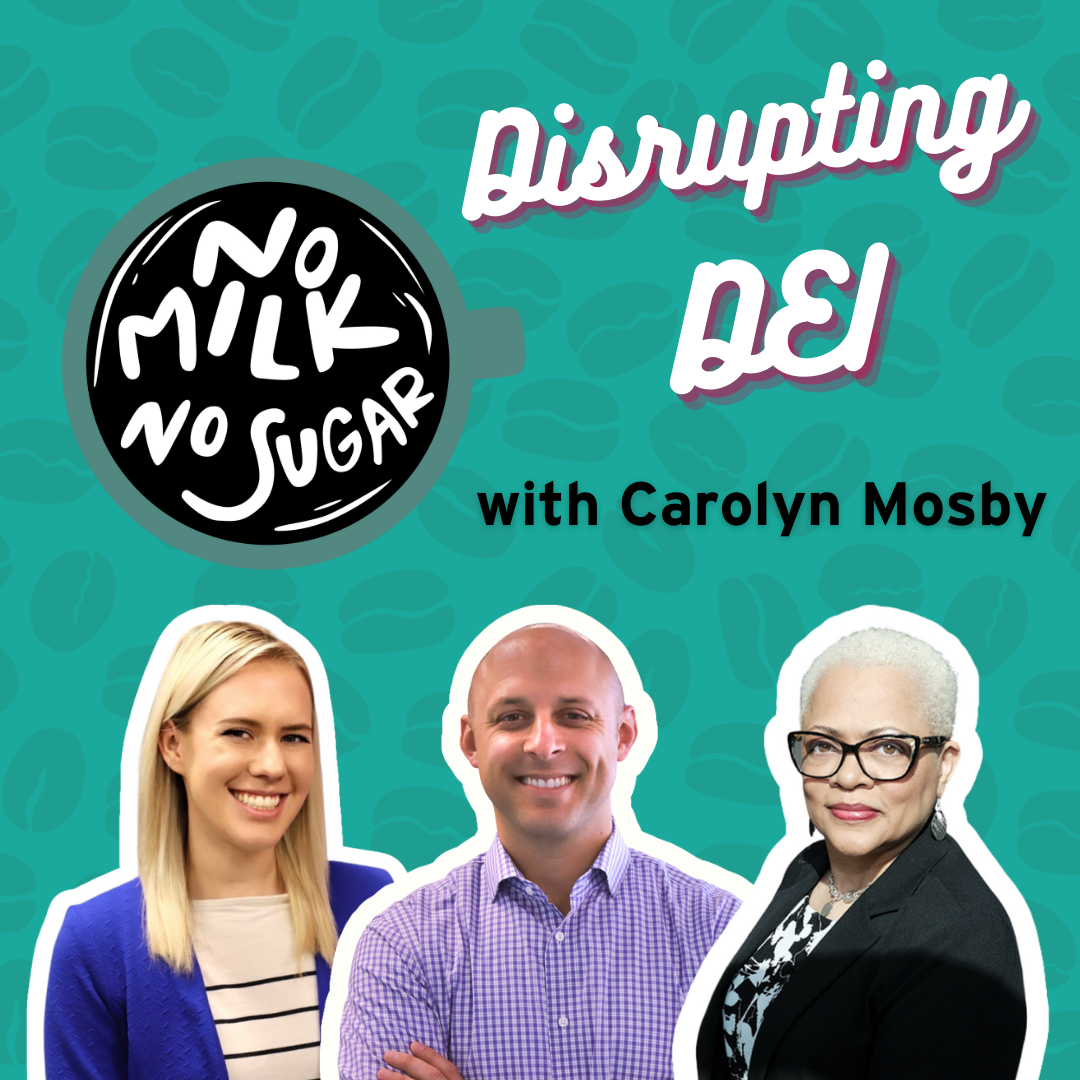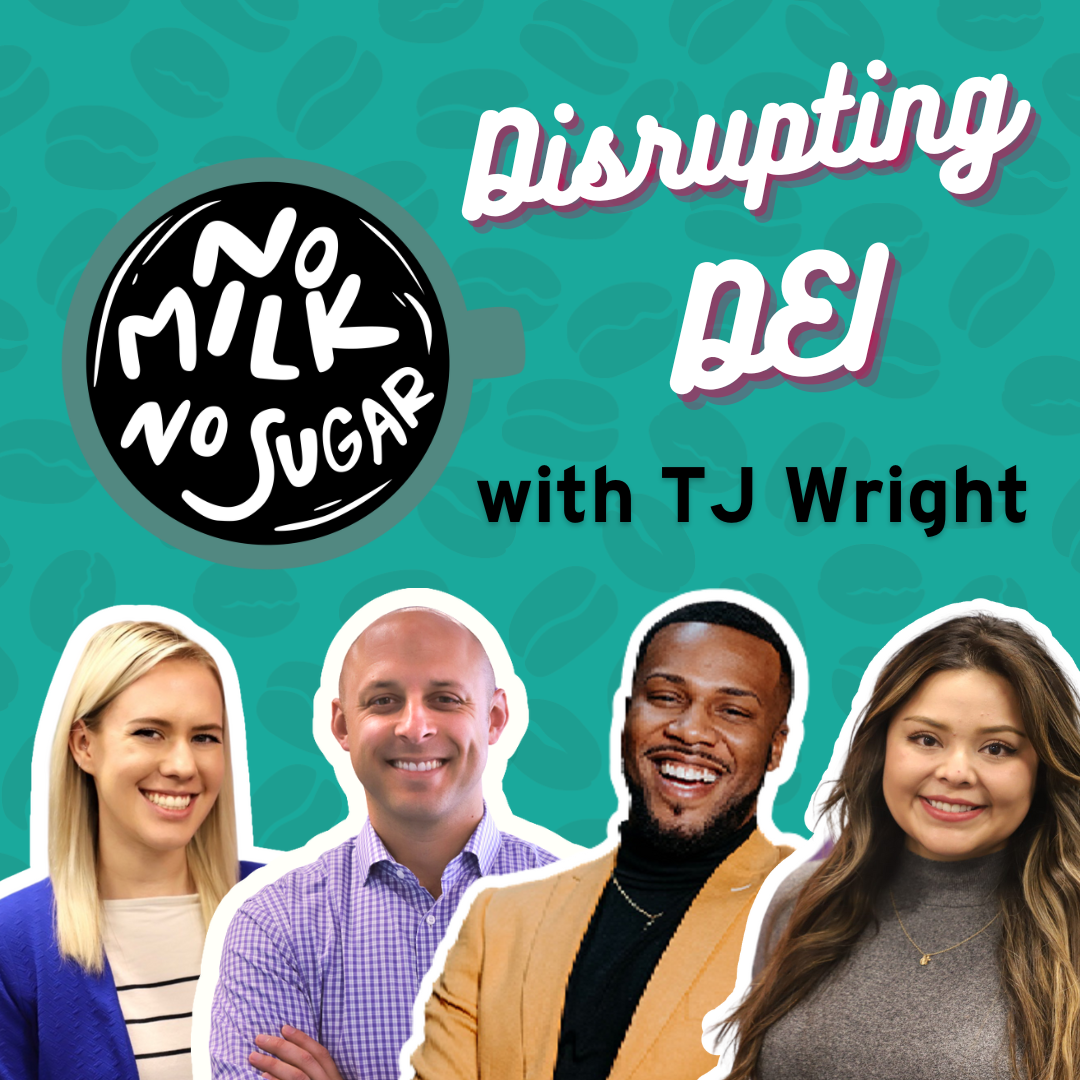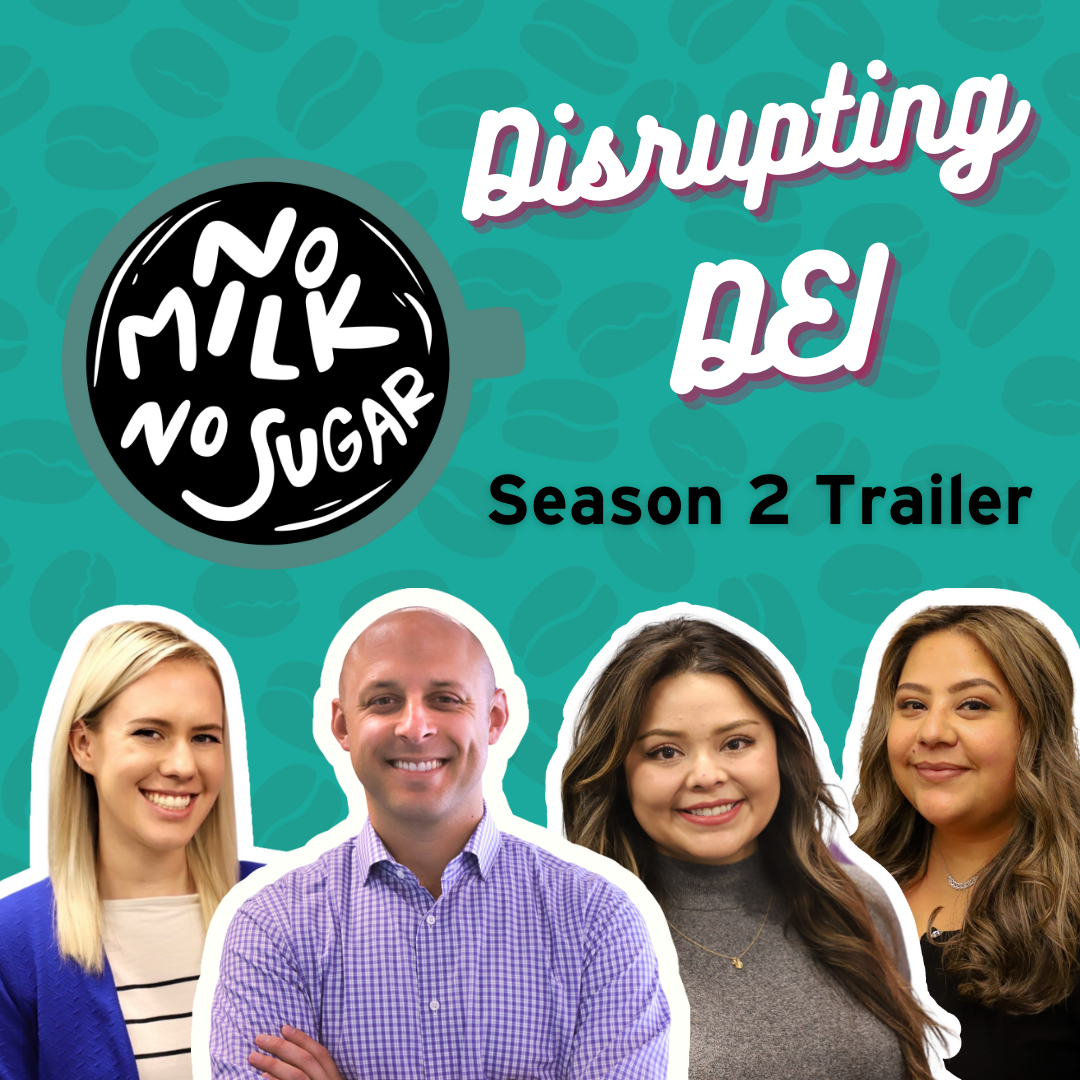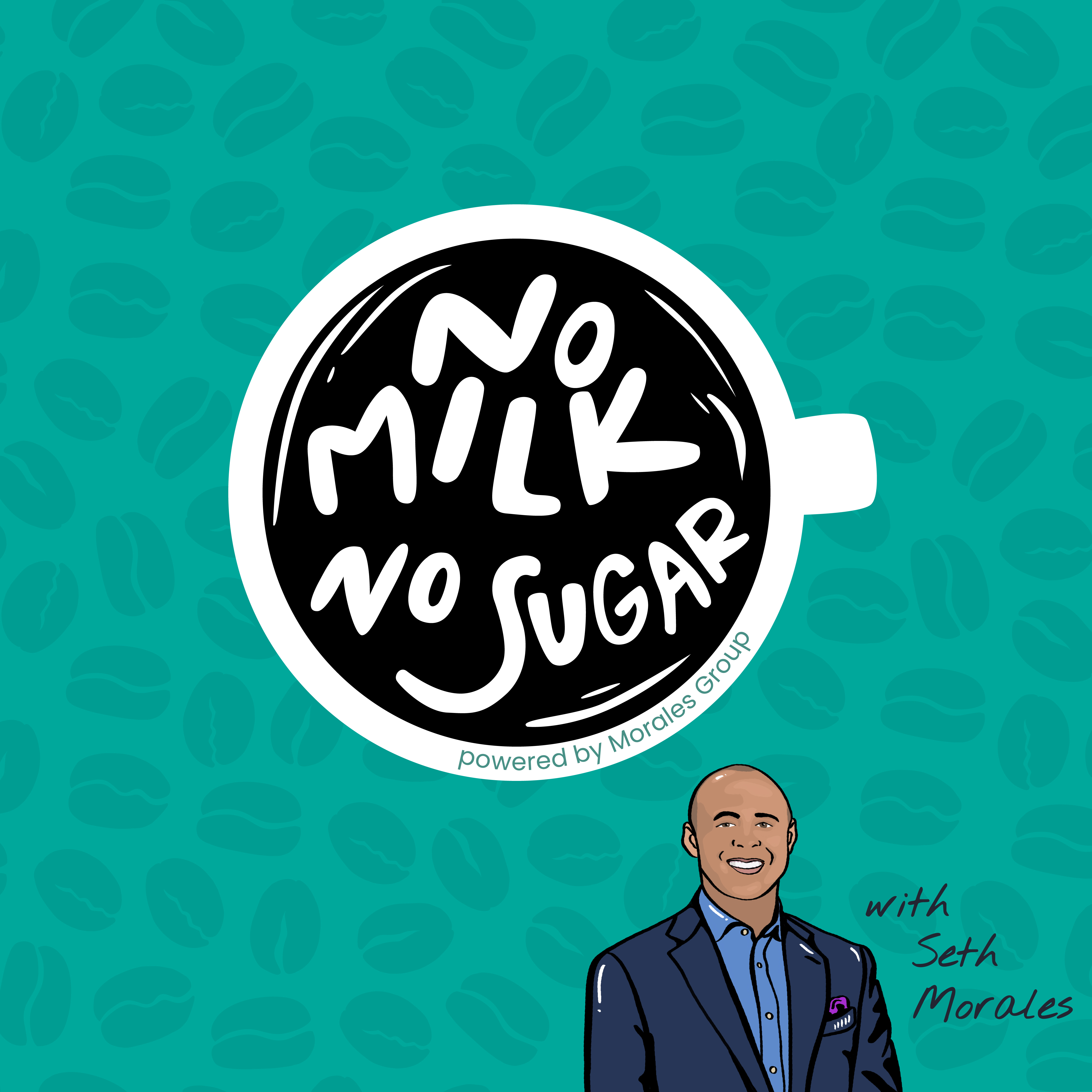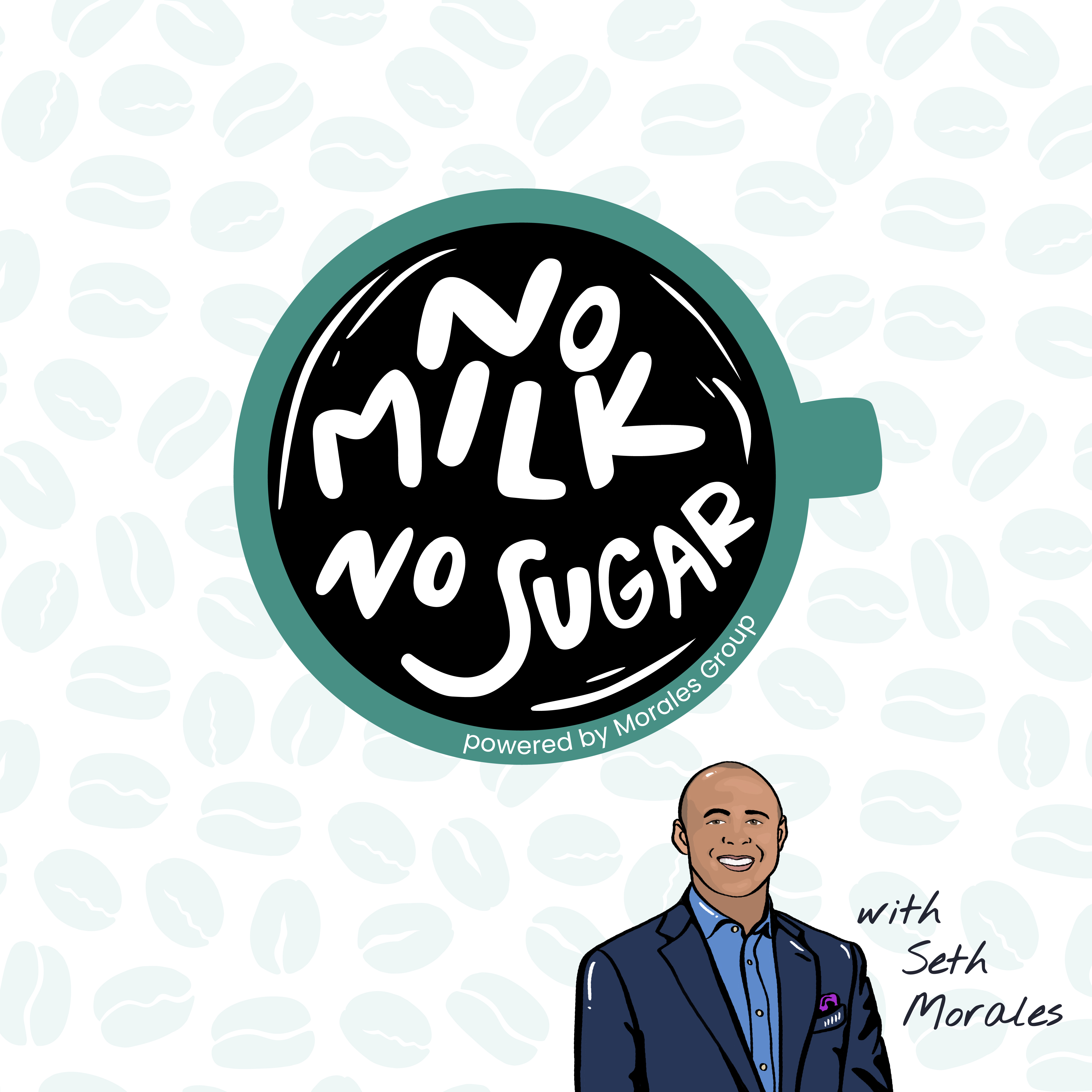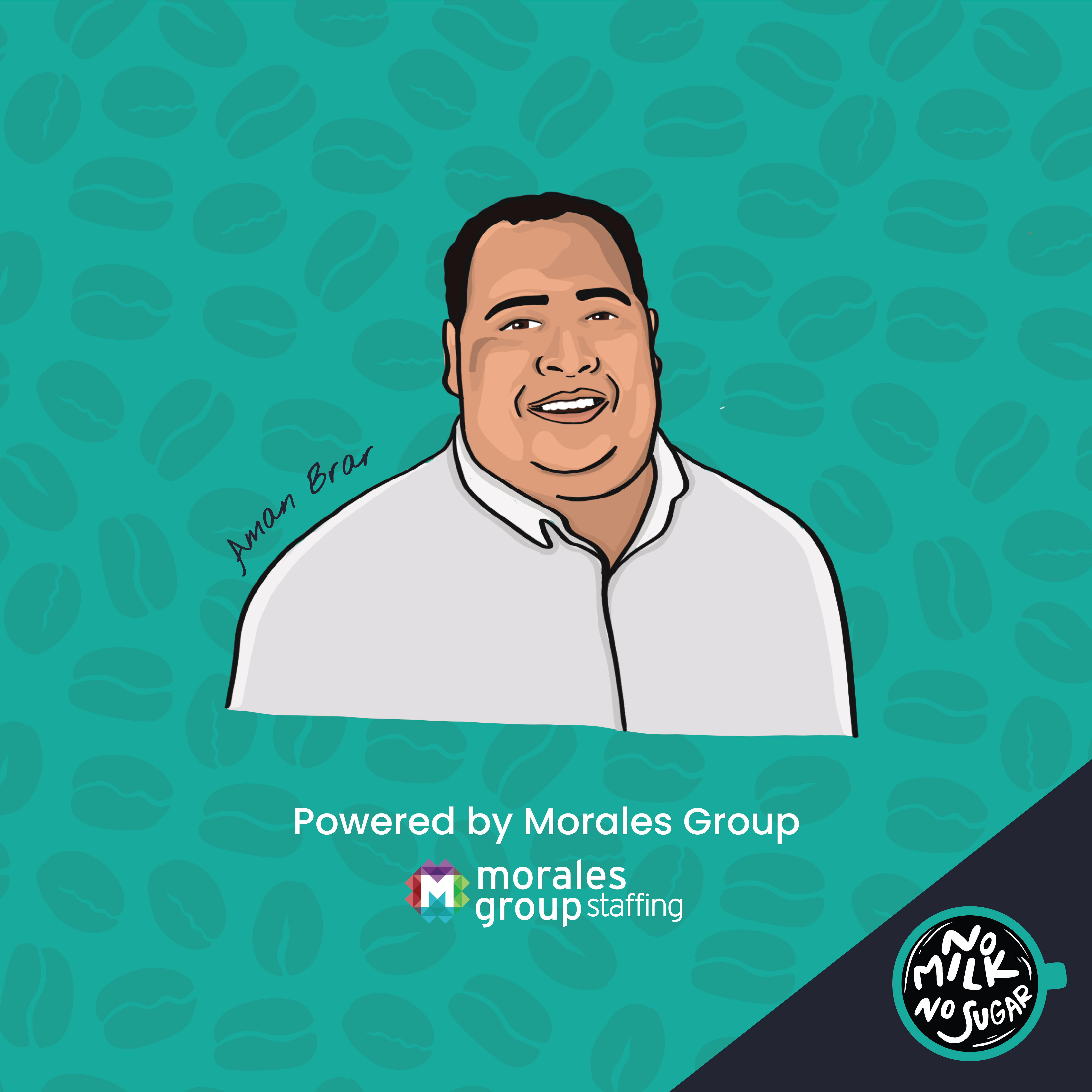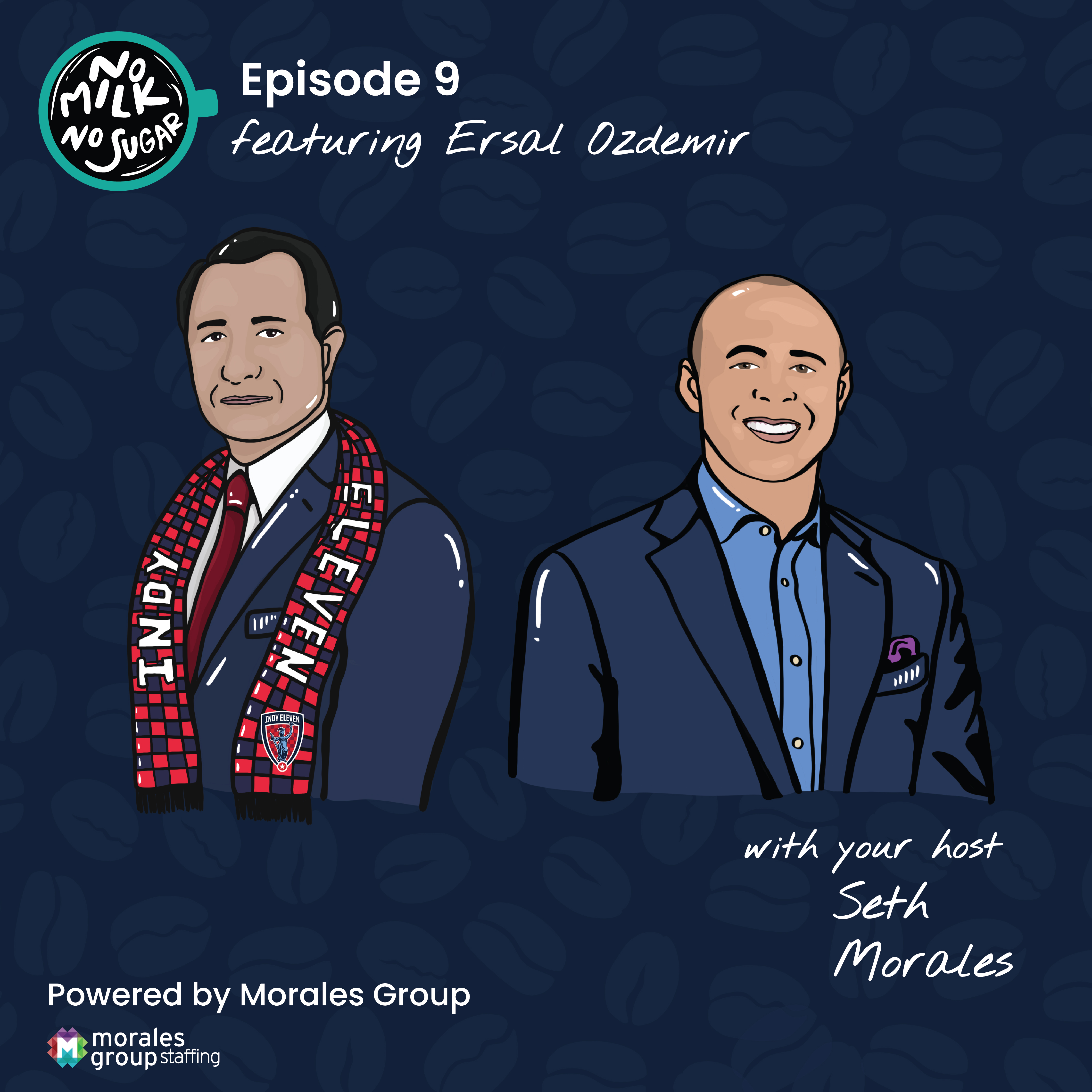Making Economic Equity Intentional, with Minority Business Leader Carolyn Mosby
- 0.5
- 1
- 1.25
- 1.5
- 1.75
- 2
Tori Updike: I have a coffee for Seth, No Milk, No Sugar.
Seth: Right here. Thank you.
Tori Updike: You're listening to No Milk No Sugar. The podcast about business beneath the sweetener. Powered by Morales Group and hosted by CEO Seth Morales, we talk to local movers and shakers about what can be the harsh reality of doing business. We cover what no one likes to advertise, but everyone wants to hear. I'm Tori, producer of the show. Today, we talked to Carolyn Mosby, former president and CEO of Mid- States Minority Supplier Development Council and seasoned corporate leader, about equity and capital and how corporations can and should level the playing field for minority businesses.
Seth: Thank you again, Carolyn, for joining the show. I think we've known each other for about a decade. I know that you just jumped into a new role. But the last 10 years, tell us about what you've been doing, all the good work that you were doing with Mid- States. Just give us a quick update on the decade of just great work there.
Carolyn Mosby: Thanks for having me today. Glad to be here. I was with Mid- States or been with Mid- States for 11 years and actually they went by really fast. I think, when I joined the organization, I joined at a time where we were actually going through some transition nationally. So when I came on board the territory expanded from one state, being Indiana, to part of three states. That was sort of what I kind of came into right away was really figuring out how to expand our service offerings across three states to make sure that we were able to serve the constituents that we represent, which is corporate America and certified minority businesses. I'd say the first few years was really focused on restructuring and really getting processes in place to be able to serve those markets. I think the biggest focus has always been on economic development and economic empowerment for communities of color, as it relates to contracting opportunities with corporate America, because that's the primary mission of Mid- States, as well as our national organization. So really looking at ways to not just connect minority businesses to corporations, but to really follow that through with actual opportunities and contracts.
Seth: Yeah, I like it. You were basically the glue or the bridge between a lot of businesses out there that were minority owned and those corporate buying Fortune 500 companies that wanted to find a way to work with other minority owned businesses. So wonderful work you did. So you said 11 years, you expanded really kind of... I mean, there's probably hundreds of millions of dollars in contracting that you were responsible for or helpful in connecting. Want to thank you for that, being a minority owned business and knowing the opportunities there. I know that you were always very helpful with trying to connect us as an organization. So we appreciate that. My first question to you is just, what are you most proud of? In that role and what you did over the last decade and some change what are you grateful and proud of?
Carolyn Mosby: Somebody asked me that a couple weeks ago and I was like," Man, I don't know." Because it just feels like there's always still so much to do. And I mean, this is just an area where... grateful for the strides we've made at supplier diversity, but there's still so much to do because the gaps are just still so large. But I'd say, for me, it's really about when I look at what our organization has been able to accomplish, it's really kind of moving the needle just a little bit. I mean, I just don't even really feel like it's been moved that much, to be honest with you, but really looking at things from the perspective of not just contracts, but more about economic empowerment. So I think partnerships, for me, has been something that I've been proud of, where we've been able to leverage partnerships on the corporate side, but also with other organizations that are focused on contracting diversity as well. I've always been a big proponent of not recreating the wheel, so if there was a way that we could leverage expertise or service or offerings that other organizations had, I've always tried to make sure that we reached out to be partners because I think we're stronger together. Because we talk a lot about encouraging our minority businesses to partner and to do joint ventures, but organizations like ours and WeBank and the state and the city, I think we have to do a better job of partnering too, because I think together we bring more resources to the table for the demographic of diverse owned companies that we're trying to reach.
Seth: I like that idea of partnerships versus contracts and really kind of together we're stronger. You talked about, real quick, you said, there's still some gaps. What would be those gaps if you were to call some of those things out. We've moved the needle, or you said you've moved the needle, but it's been not to your liking. Where's there more work to be done?
Carolyn Mosby: We always talk about access to capital, but even when you look at the dollars that are spent by corporations, it's just a little bit. I mean, when you look at their overall spend in contracting with suppliers and the percentage that goes to diverse suppliers, that's a huge gap. One of my counterparts in Michigan did a study, and the study showed that if corporate America continues to move at the pace that they're currently moving at, it will take 333 years for us to reach any sort of economic parity. So that's very concerning. So, I think you give kudos to those companies that are definitely meeting their goals and stretching beyond their goals and even thinking outside of the box, but there's still a long way to go when you look at the disparity that exists when it comes to contracting opportunities for diverse owned companies.
Seth: Wow. That stat, that study of-
Tori Updike: That's a powerful number.
Seth: That your colleague did, 333 years to reach parity.
Tori Updike: Do you think that more aggressive strategy needs to be-
Seth: Wow.
Tori Updike: taken into place to reach the parody you're talking about?
Carolyn Mosby: Yeah, absolutely. I mean, you'd think more aggressive strategies, more thinking outside of the box and not just continuing to do things that we've always done. I think that there's an opportunity for companies to be more intentional about providing opportunities. And it's not just mentoring programs, it's not going to trade shows and meeting people, it's really being intentional about, hey, if you're really trying to make a difference and you say you don't have any diverse suppliers in a particular area, help a minority business get started in those areas where you have the gap. Invest in a company directly. Don't give them a loan, become their business partner or help them get set up and go into business so that they can become your main supplier. I think there are ways that you can think outside of the box. There's a corporation who is about to announce something that I've not heard of in a while, and I don't want to steal their thunder, but they're about to do contracting that's specifically for one particular ethnic group. They're going to be letting contracts for a particular service, and it's going to be only available to a certain ethnic group. That's their way of trying to level the playing field in an area where they see they only have one supplier of color in that particular area. So they're saying, how can we provide more opportunities and remove some of the barriers to entry? So I think corporations have to think outside of the box and not be afraid to do things that they haven't done before.
Seth: I'm coming back to this stat that it would take over 300 plus years to reach parity. Where are we at today? Is there a certain stat, like, hey, this is what percent minority own opportunities are getting? What does that look like today? Is there a number, a key stat?
Carolyn Mosby: In central Indiana among corporations that are affiliated with Mid- States that reported their numbers to us just during the month of February for black history month, we had maybe, gosh, I think it might have been like 32 companies reported their black business spend and it was$ 400 million. Now, some people might think that's good, but when you consider one or two of the people on the list are probably in the$ 300 million range, that's not very good. And black owned businesses are our largest demographic of certified, but then Hispanic is second. And so we'll be doing that same kind of study for Hispanic heritage month. But I mean, I won't be surprised that those numbers will probably look very similar. The challenge is that many of the companies that have good intentions don't have the support for supplier diversity that starts at the top of the organization. Just like anything that's important to a company, if the CEO isn't driving it, if it's not attached to performance and things like that, there's no accountability. So if you have someone that's a middle manager or director in supplier diversity or purchasing that's trying to drive a program and they don't have any support, that's very difficult. There are companies out there that have good intentions, but they just don't have the infrastructure set up to really support a program, and then you have others that it's really just lip service. And they think just by paying a membership fee to my organization or others that that somehow is speaking to some sort of commitment, and it isn't.
Seth: That's the essence of No Milk No Sugar, kind of shooting it straight and saying what's not working and what needs to be done. I appreciate you sharing that.
Carolyn Mosby: I just want to say too, with the companies and that number at 400 million, we have to start someplace, and I think that gave us a really good benchmark. And so for those companies that were willing to share their numbers and to say, hey, we're doing something. We're not doing great, but we want to do better. How can you help us? Because that was really the point of us asking for the numbers, just to say, hey, let's see where we're at and what we can do to do better, so certainly not to shame anyone or point a finger.
Tori Updike: You brought up a lot of the things- that we
Carolyn Mosby: But we have to start someplace-
Tori Updike: already wanted to ask you about,
Carolyn Mosby: And there has to be a commitment made.
Tori Updike: one being pitfalls that you see companies or organizations constantly falling into. You mentioned we just need to get started. What's something that corporations or companies can take that first step to taking action into creating these equitable partnerships so it's not just lip service. You mentioned infrastructure, but that takes a lot of time, so where would you recommend that organizations begin?
Carolyn Mosby: Well, it has to start from the top, so it has to be a commitment and it has to be communicated by the leadership of the organization that it's important. It has to be something that is attached to performance. I think the organization has to take a look at where they have gaps in their supply chain and where they need diverse suppliers and look for those opportunities. And to utilize best practices that are out there. There's a group called the Billion Dollar Roundtable that's comprised of corporations that spend in excess of a billion dollars every year with diverse owned companies. They've actually put together a list of best practices that they've used to get to that billion dollar spend, to really leverage the information that's out there, that's provided by companies that are part of the Billion Dollar Roundtable, that really provides the roadmap. But one of the other things that we've been talking about here locally a lot with the Business Equity for Indy initiative and the Procurement Roundtable is, working with a consultant Reggie Williams, who talks about fail safe. And that's basically saying that no contracts will be let without the solicitation of diverse suppliers. So if you're intentional about making sure that you're actively seeking diverse suppliers to participate in the procurement process, and then there's accountability that goes throughout the organization, then everybody has some skin in the game, and they're more intentional about looking for those diverse suppliers. So you have to be intentional in order to affect change.
Seth: You have been the focal icon in minority owned business spaces, the connector and the glue to corporate, publicly traded Fortune 500 companies and groups like Telamon or Mace Chemical and other affiliates like Morales Group, where you've been great at just connecting the dots and trying to champion. It sounds like there's more work to be done and-
Tori Updike: I mean, the main theme on season two of No Milk No Sugar is disrupting DEI. We want to have a lot of tangible takeaways for organizations to either get started or further equity in their spaces, networks, or workplaces. Is there anything else you want to nutshell just for our listeners, especially what can we as corporate spaces due to further equity in our networks?
Carolyn Mosby: I mean, I think people have to be willing to speak up and go left when everybody else is going right. Because without the intentionality in this space, it's just not going to happen. There has to be more than one advocate. There has to be more than one person that's trying to push the envelope and you have to be able to have uncomfortable conversations. I had one yesterday with an organization that I've been talking to for several years, probably for as long as I've been with the council, where I've questioned, we, as a state and as a city, we are constantly seeking to bring major corporations to central Indiana and to the state. And we give them all, everything, give them tax breaks and all kind of things to get them here. We don't ask a whole lot of them, but among the things that we do ask them for isn't for them to make a commitment to doing business with diverse suppliers. And when you think about when a major corporation does relocate here or builds a plant, our suppliers want to do business with them. So if the state of Indiana is talking about diversity and entrepreneurship is important, then you need to be more deliberate in making sure that those companies that you're recruiting here make a commitment to doing business with diverse owned companies, not just ethnic, but women and veterans and LGBTQ. Because again, at the end of the day, it's all about economic development. Those companies are helping to fuel communities and provide jobs and buy homes in different communities, and so I think we have to be more deliberate about asking those corporations to make commitments to our community beyond just hiring a few people.
Tori Updike: Thanks for tuning into another episode of No Milk No Sugar, the podcast about business beneath the sweetener. We hope you learned something, and we'd love to hear from you. Tag us with hashtag No Milk No Sugar, or email us at nomilknosugarpod @ gmail. com or connect with Seth on LinkedIn. Subscribe wherever you get your podcasts, and we'll see you next time.
DESCRIPTION
"You have to be intentional in order to effect change." In this short episode, we talk to Carolyn Mosby, minority business leader and seasoned executive. She gets to the core of economic realities of inequity for minority businesses and how corporate lip service prevents actual change for DE&I work. Tune in to hear how corporations (including yours) can put their money where their mouth is.
Today's Host
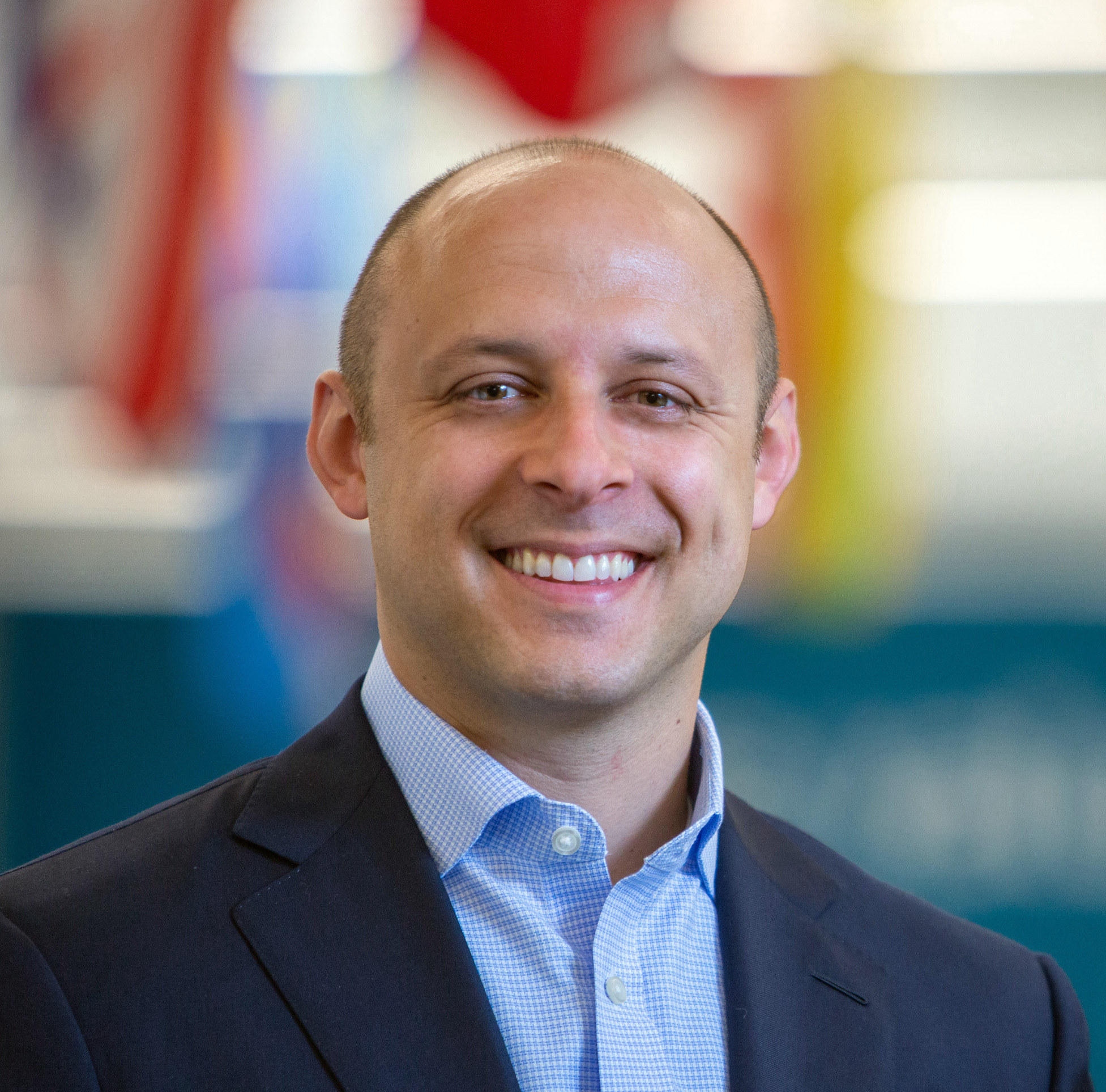
Seth Morales
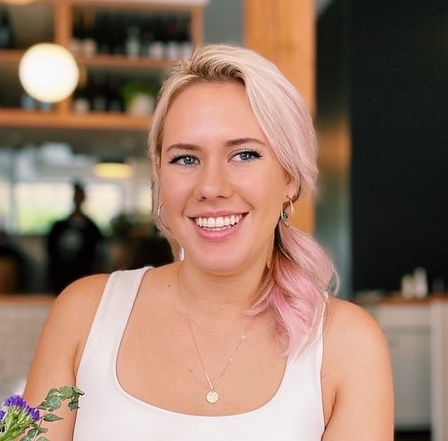
Tori Updike
Today's Guests
